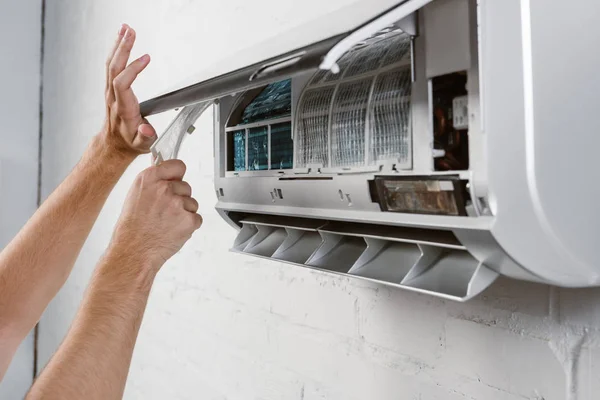When it comes to residential air conditioning repair, there are a few different methods you can use. If the compressor fan stops working or is making weird noises, you may have a problem with the capacitor. You can test the capacitor by listening for the clicking noise or hum and buzzing. If you cannot hear any noise, try pushing the compressor fan with a thin stick or long screwdriver. If this doesn’t fix the problem, replace the capacitor.
Repair costs
The cost of repairing a residential air conditioner varies based on the size of the unit, type of system, and the time needed to complete the work. Most HVAC repair costs start at $85 and go up to $150 an hour. These rates are based on the cost of parts plus the amount of time required to complete the repair. Minor repairs can be handled by the homeowner, but for more complicated problems, a licensed HVAC technician should be called.
The repair of a residential air conditioning system is much more affordable if it is minor. Minor repairs don’t take a lot of time and often involve inexpensive replacement parts. More serious AC repairs can be very expensive and could end up costing almost as much as replacing the unit. While most homeowners opt for repairs, it is important to consider whether replacing the unit is more cost-effective. In some cases, an affordable repair cost might simply be a sign of low-quality parts or inexperienced technicians.
Replacement costs
A common mistake many people make when it comes to residential air conditioner repair is waiting until the problem is beyond their ability to fix it themselves. This can result in higher energy bills and the need to replace more parts. Even worse, if you do not repair the problem quickly, you may end up with a system that’s completely faulty before it can be fixed. In such a case, it would be wise to consider a replacement.
When replacing your system, you’ll have to pay for the replacement parts and labor separately. Depending on your needs, replacement labor can cost between $500 and $2,000. The installation process can take anywhere from one to three days. You’ll likely have to pay an additional service call fee, but this shouldn’t be an issue if you’re handy. However, if you don’t feel confident in your abilities, you can try to do it yourself.
Troubleshooting
If you have a problem with your air conditioning system, you can troubleshoot it yourself. You can check for common problems with your cooling system by following these steps:
To start, check your thermostat. If it does not operate, the cause may be a tripped circuit breaker, a blown fuse or a dirty filter. Another potential cause is a damaged capacitor or a dead thermostat. These issues can be difficult to diagnose yourself, but a trained professional will have the appropriate diagnostic tools and experience to repair them. After a few attempts, you should have a fully functional cooling system.
Check your condenser coil. When the evaporator coil is too cold, the condenser coil may not be getting enough heat. If this happens, a layer of ice will build up outside. Also, a faulty condenser can cause warm air to circulate. If you notice any of these issues, contact your HVAC technician as soon as possible. If you don’t get the problem fixed in a timely manner, you can hire a professional to do the job.
Battery-operated air conditioners
If you want to use an A/C without electricity, consider buying a battery-operated one. These devices are portable and can cool small spaces quite effectively. They tend to be quiet and have a lower sound level than traditional models. The battery runtime varies with the model, battery size, and age. This is especially important for off-grid use, camping, and other outdoor activities. Battery-operated air conditioners can also be charged at car charging outlets.
When choosing a battery-operated residential air conditioner, consider the price, capacity, and features. A smaller unit may be a better fit for a small space than a larger one. The Zero Breeze Mark 2 air conditioner has four fan speeds, a powerful 2300 BTU microprocessor, and can cool up to 200 square feet. It also has a USB port and an LED light, and it’s quieter than most traditional AC units. However, the price tag is quite high at over $200.
Grinding noise from the AC compressor
Whether it’s a grinding or hissing noise, residential air conditioners can be very frustrating. The good news is that the most common cause of these noises is fairly simple to fix. An AC compressor is the heart of an AC unit. It’s a pump that converts refrigerant and has valves and a spinning component that make noises when it fails. The sounds they make are a different description for each person.
If your AC unit is making a grinding noise, the most likely culprit is its compressor. It’s the core of the HVAC unit, so if it fails to work properly, it will result in further damage. To fix this issue, call a professional air conditioning repair expert. Here are some common causes of the grinding noise.


